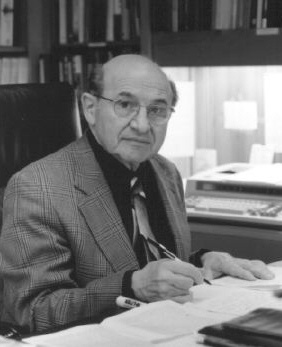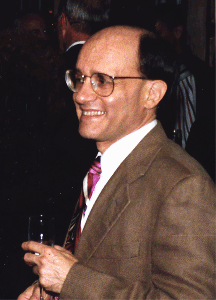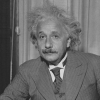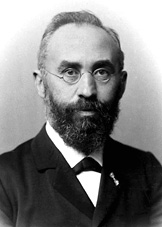|
Space
and Time in Physics and
Metaphysics
lecture course
Thu 16:00-17:30
Room 129 (Múzeum krt. 4./i)
(The
lectures will be given in English.
The exam can be taken in English
or Hungarian.)
Due to
the situation in Building “i”,
the class will start from 20
February.
Zoom link:
https://zoom.us/j/968776113
Meeting ID: 968 776 113
Codes:
BMI-LOTD-208E.6
BMA-LOTD-208.08
BMA-FILD-401/01
BBN-FIL-401/01
Contents
- Conventionalism, semantic
convention, operationalism,
constitutive a priori
- Absolute vs. relative
conceptions and objectivity
- Early 20th century definitions
of distance and time - Lorentz
vs. Einstein
- The proper understanding of
the relativity principle - the
lesson from Gallileo
- Reconstruction of the
Lorentzian and the Einsteinan
theories
- Problems with the standard
definitions of distance and time
- logical and operational
circularities
- The precise empirical
definitions of basic
spatio-temporal conceptions
- Relativity to what?
- Spacetime, determinism,
objective becoming
- Spacetime and existence:
presentism vs. eternalism,
endurance vs. perdurance
- Spacetime and causality
- Spacetime and irreversibility
- Why just time?
Grading criteria, specific
requirements
Oral exam from the material of the
lectures. Video records and the
slides of the lectures will be
available.
Suggested readings
- L. E. Szabó: Empirical
Foundation of Space and Time, in
M. Suárez, M. Dorato and M.
Rédei (eds.), EPSA07:
Launch of the European
Philosophy of Science
Association, Springer
2009. [PDF]
- J. M. E. McTaggart: The
Unreality
of Time, in: The
Philosophy of Time
(Oxford Readings in Philosophy),
R. Le Poidevin, M. MacBeath
(eds.), Oxford University Press,
1993. (Eredeti mű: The Nature of
Existence, 33. fejezet,
Cambridge University Press,
Cambridge 1927.)
- H. Reichenbach: The Theory
of Relativity and A
Priori Knowledge,
University of California Press,
Berkeley and Los Angeles, 1965.
- L. E. Szabó: On the meaning of
Lorentz covariance, Foundations
of
Physics Letters 17
(2004) pp. 479 - 496
[preprint: PDF]
- L.E. Szabó: A
nyitott jövő problémája -
véletlen, kauzalitás és
determinizmus a fizikában
(The Problem of Open Future
- chance, causality, and
determinism in physics),
Typotex Kiadó, Budapest
2002 (The manuscript of
the English edition will be
available for the students in
PDF form.)
- H.
Reichenbach: The
philosophy
of space and time,
Dover Publications, New York,
1958.
- M. Friedman: Foundations
of Space-Time Theories --
Relativistic Physics and
Philosophy of Science,
Princeton University Press,
Princeton, 1983.
- J. S. Bell: How to teach
special relativity, in Speakable
and unspeakable in quantum
mechanics, Cambridge
University Press, 1987.
- A. Einstein, Relativity:
The Special and General Theory
- A. Einstein: A
speciális és általános
relativitás elmélete,
Kossuth, 1993.
- L. E. Szabó: Lorentzian
theories vs. Einsteinian special
relativity -- a
logico-empiricist
reconstruction, in A. Maté, M.
Rédei and F. Stadler (eds.), Vienna
Circle and Hungary --
Veröffentlichungen des
Instituts Wiener Kreis,
Springer 2011. [PDF]
- L. E. Szabó: Does special
relativity theory tell us
anything new about space and
time? [PDF]
(Prolog)
2019-11-07
|
|

Videos and
slides
Exams:
Every
Wednesday 2PM
between 20 May and 1 July,
by Zoom.
(If you cannot sign up through
Neptun, just write me an email.)
TTK-s és IK-s
BSc hallgatók!
Filozófia
minor
TTK-s és IK-s
BSc hallgatók!
Logika és
tudományelmélet MA
szak
benne
A fizika
filozófiája
vagy
A matematika
filozófiája
alprogrammal!
|
(in
English)
The
program
focuses
on logic and
its
applications
in the
philosophy of
science,
particularly
in the
foundations of
mathematics,
physics,
linguistics
and the social
sciences.
Beyond a few
core courses
and a joint
four-semester
seminar series
aimed at
providing a
common
background to
all students,
we offer the
following four
modules:
- Logic
and the
Philosophy of
Mathematics
-
Philosophy of
Physics
- Logic
in Linguistics
- Models
in the Social
Sciences
Students
have to select
one of these
modules based
on their
personal field
of interest.
>>>
Further
details
|
|
|
|
|

 LÁSZLÓ E. SZABÓ'S
WEB PAGES
LÁSZLÓ E. SZABÓ'S
WEB PAGES 

























